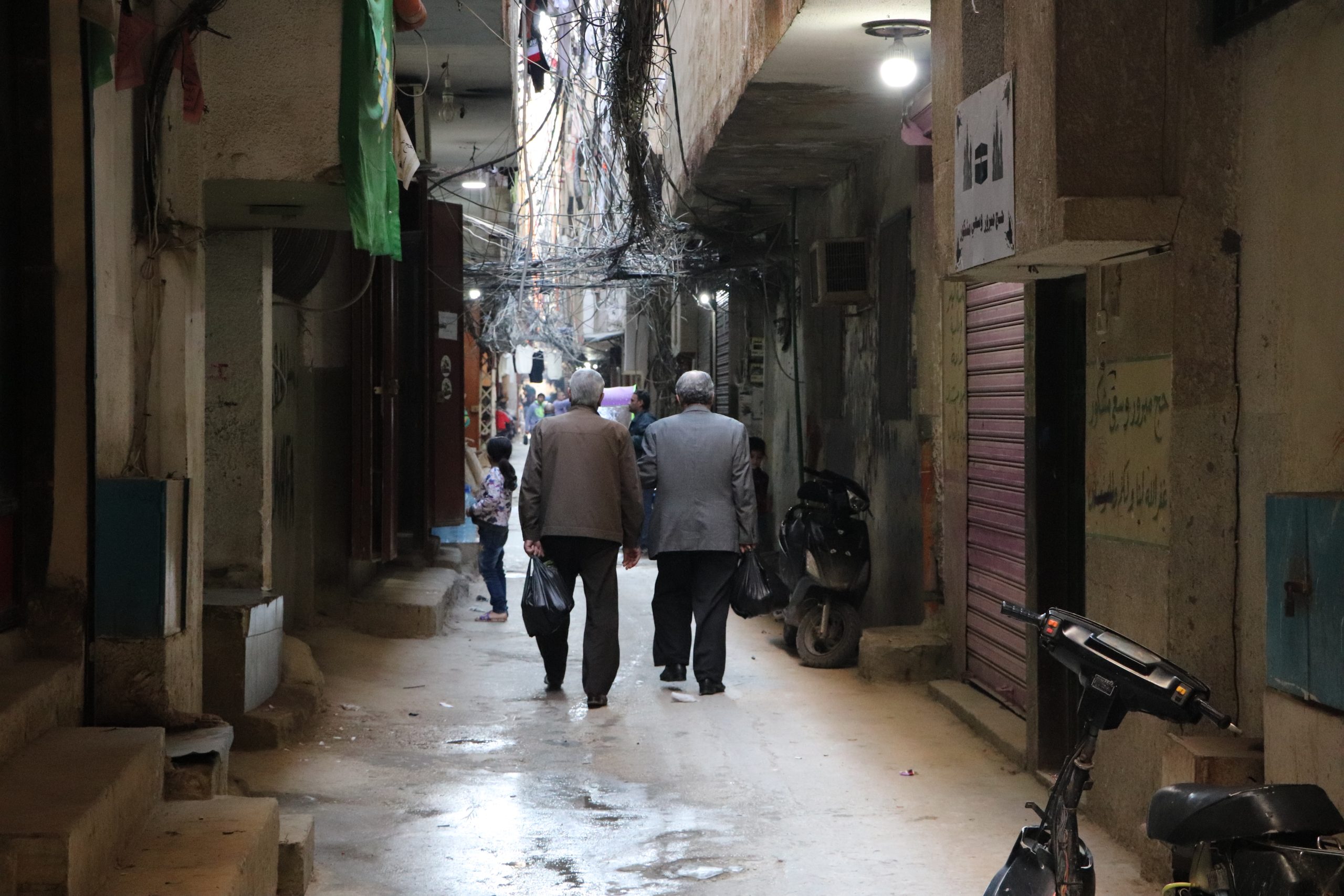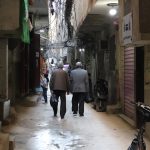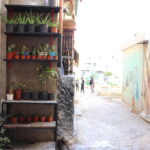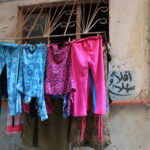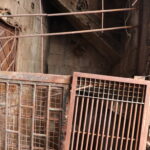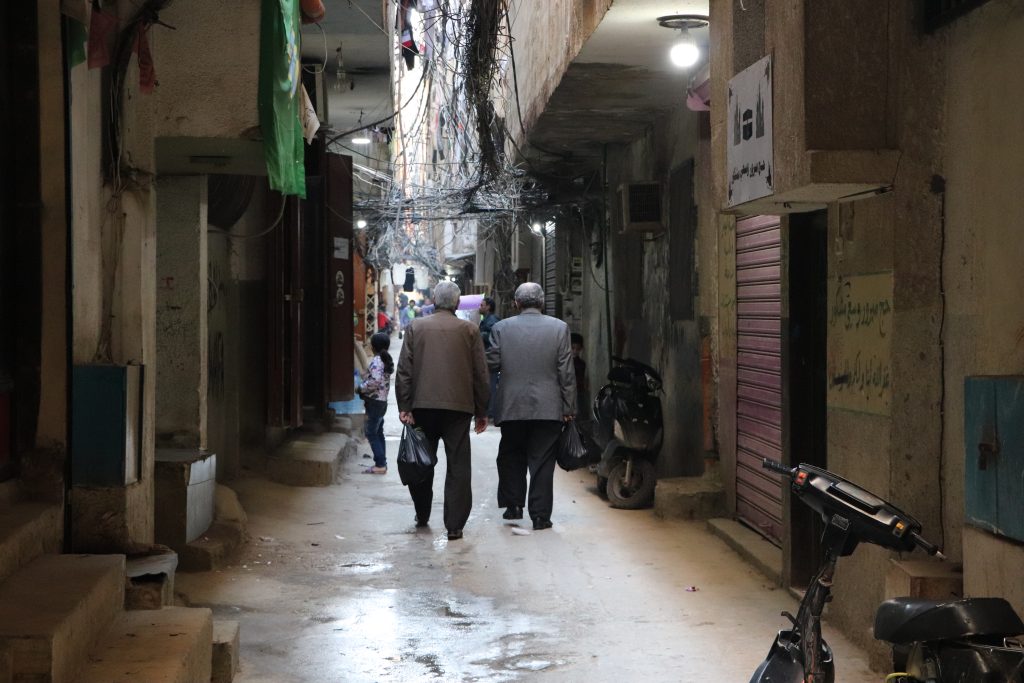
LOCATION
Baddawi Camp, Lebanon
OUR TEAM
Yousif M. Qasmiyeh, Oxford University, United Kingdom
Elena Fiddian-Qasmiyeh, University College London, United Kingdom
PARTNERS
The Baddawi Camp Cultural Club, Project Partner
Baddawi Camp Lab, Lebanon
SYNOPSIS AND POSITION
The Baddawi Camp Lab approaches egalitarian archiving practice through developing the hosts’ existing engagement with ruination (Qasmiyeh 2019) and rhizoanalysis (Fiddian-Qasmiyeh 2019a/b) and building on materials shared with the Tanzania Lab team. The Lab provides opportunities to reflect on a series of historical, social and conceptual connections between Baddawi Camp and some of the themes and sites explored by the Tanzania Team, especially with regards to forms of archiving multiple narratives and sites of remembrance. This has already been explored following a pilot visit in July 2019, with a number of gatherings and creative writing workshops scheduled for 2021-2022. With a view to building synergies with the Tanzanian sites, the Baddawi Camp Lab will facilitate 3 intersecting case-studies: 1) Travelling and stagnant ruination in the colonial prisons in Tanzania and the UNRWA and PLO and bomb shelters in Baddawi Camp, 2) Tracing the multiple past, present and (imagined) future connections between Baddawi Camp and diverse people and places from different regions of Africa, 3) Trauma and Space in Baddawi Camp. These cases act as catalysts to building our approach for a cross-context methodology for egalitarian archiving and testing its transferability across sites and moments, and is important for the Lab in order to prioritise modes of what we can term ‘South-South engagement’.
OBJECTIVES AND METHODS
The lab seeks to:
- Understand the traveling and stagnant ruination in the colonial prisons in Tanzania and the UNRWA and PLO and bomb shelters in Baddawi Camp through interviews, oral histories, (popular and institutional) archival analysis, creative writing, and photography. This case-study will examine the past, present and futures/legacies of the UNRWA and PLO bomb shelters in Baddawi Camp, placing them into conversation with the team’s analysis of colonial prisons in Tanzania. We are particularly interested in how these sites (shelters and prisons) have been transformed into places of ruination whereby pasts and presents continuously meet and diverge as they ponder their respective futures.
- Our second case-study focuses on the area of the Upper Camp where the UNRWA schools (and hence bomb shelters) are situated, and which is also Hay al-Muhajarin: the neighbourhood which is home to Palestinians of African descent who were displaced (mainly from al-Nabatieh Camp) to Baddawi Camp in the 1970s. This case study explores the multiple past, present, and (imagined) future connections between Baddawi Camp and diverse people and places from different regions of Africa. It is widely acknowledged that Afro-Palestinians/Black Palestinians are a particularly under-researched group of Palestinians (writ large and including in Lebanon), and this case-study will ensure that the diverse constituents of the camp and/as archive are at the forefront of our analysis. A further link with Africa, and specifically with Tanzania, is its role in hosting Palestinian intellectuals and leaders in exile from the 1960s. In this case study, we, therefore, aim to engage critically with the ways that displacement inheres other displacements by focusing on multiple and overlapping histories.
- Trauma and Space in Baddawi Camp. This case-study relates to the Tanzanian team’s reference from their pilot to the “trauma-filled abandoned cotton fields” and explores how and why certain spaces historically associated with violence and trauma have come to form the foundations of the contemporary refugee camp and its neighbouring area (Jebel al-Baddawi). In addition to the UNRWA and PLO bomb shelters, we will examine how liminal spaces on the threshold of the camp – such as the Zeitun (olive) groves, Jebel (hill/mountain) groves, and football pitches – have been transformed by both Palestinian and Lebanese publics into old-new spaces of memory and imagined futures.
WORKSHOPS AND EVENTS
In June 2020, Prof. Elena Fiddian-Qasmiyeh and Yousif M. Qasmiyeh presented the Baddawi Camp Lab’s work, under the title ‘The Camp as Archive: Baddawi Camp, North Lebanon,’ at the inaugural ACU Peace and Reconciliation Network Conference (Stellenbosch University).
In October 2020, Yousif M. Qasmiyeh spoke and read his poetry on ‘Camps, Refugees and Ruination’ at Wagner University, New York.
November 2020: Yousif M. Qasmiyeh was invited to read the poetry of Seamus Heaney and to discuss “Heaney in translation and the open nature of his incomplete rhymes, before recalling his own first encounter with Heaney in a Palestinian refugee camp in Lebanon” as part of the Institute of Irish Studies online event: Human Chain: Poets on the Poetry of Seamus Heaney. You can watch Yousif and other poets here.
On 21 January 2021, Prof. Elena Fiddian-Qasmiyeh offered a seminar at the University of Washington, on ‘Shifting the Gaze: Southern-led Humanitarian Responses to Displacement.’
In February 2021, Yousif M. Qasmiyeh’s poetry collection, Writing the Camp, was published by Broken Sleep Books. Writing the Camp has been selected by The Poetry Book Society as the PBS Spring Recommendation for 2021, and includes poems commissioned as part of the Imagining Futures project.
ACTIVITIES
- On 11 June 2020, Yousif M. Qasmiyeh’s poem, ‘The Bomb Shelter,’ which was written as part of the IF Baddawi Camp Lab which he jointly leads, was published on Refugee Hosts and can be read here: https://refugeehosts.org/2020/06/11/the-bomb-shelter/.
- On World Refugee Day 2020, Prof. Elena Fiddian-Qasmiyeh and Yousif M. Qasmiyeh were invited to published an OpEd for the Association of Commonwealth Universities, titled “The Camp as Archive: Refugees and ruins in Baddawi camp,” which is available to read here: https://www.acu.ac.uk/news/the-camp-as-archive-refugees-and-ruins-in-baddawi-camp/.

